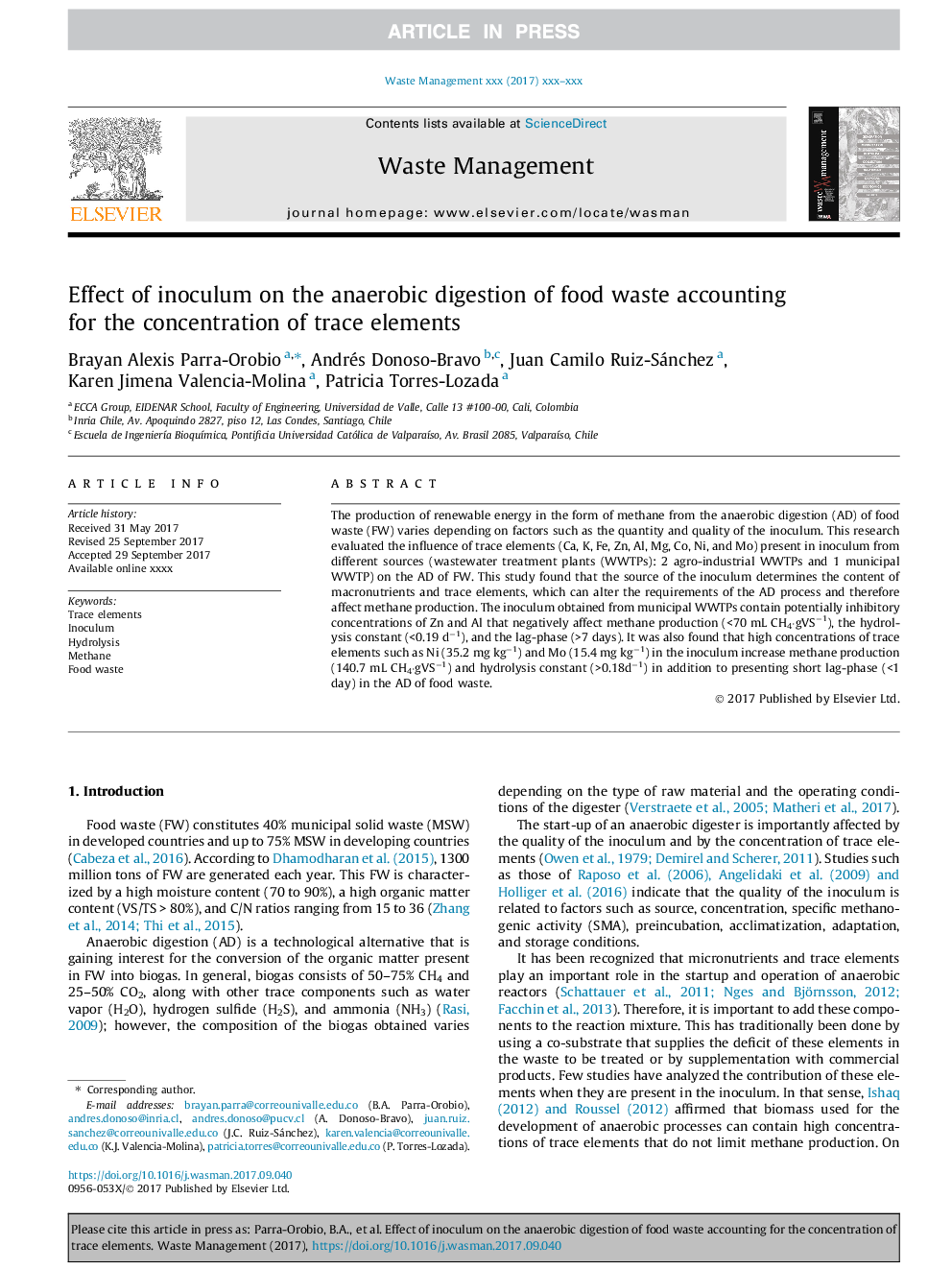| Article ID | Journal | Published Year | Pages | File Type |
|---|---|---|---|---|
| 8870251 | Waste Management | 2018 | 8 Pages |
Abstract
The production of renewable energy in the form of methane from the anaerobic digestion (AD) of food waste (FW) varies depending on factors such as the quantity and quality of the inoculum. This research evaluated the influence of trace elements (Ca, K, Fe, Zn, Al, Mg, Co, Ni, and Mo) present in inoculum from different sources (wastewater treatment plants (WWTPs): 2 agro-industrial WWTPs and 1 municipal WWTP) on the AD of FW. This study found that the source of the inoculum determines the content of macronutrients and trace elements, which can alter the requirements of the AD process and therefore affect methane production. The inoculum obtained from municipal WWTPs contain potentially inhibitory concentrations of Zn and Al that negatively affect methane production (<70 mL CH4·gVSâ1), the hydrolysis constant (<0.19 dâ1), and the lag-phase (>7 days). It was also found that high concentrations of trace elements such as Ni (35.2 mg kgâ1) and Mo (15.4 mg kgâ1) in the inoculum increase methane production (140.7 mL CH4·gVSâ1) and hydrolysis constant (>0.18dâ1) in addition to presenting short lag-phase (<1 day) in the AD of food waste.
Related Topics
Physical Sciences and Engineering
Earth and Planetary Sciences
Geotechnical Engineering and Engineering Geology
Authors
Brayan Alexis Parra-Orobio, Andrés Donoso-Bravo, Juan Camilo Ruiz-Sánchez, Karen Jimena Valencia-Molina, Patricia Torres-Lozada,
